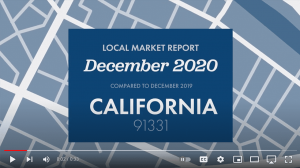In the highly competitive real estate industry, it is crucial to stay informed about the latest market trends, statistics, and local developments to maintain a competitive edge and establish credibility with potential clients. As an essential part of a comprehensive real estate marketing strategy, providing regular local market updates can not only set you apart from the competition but also enable you to provide invaluable insights and guidance for your potential clients.
In this educational, informative, and insightful blog post, we will explore the importance of mastering local market updates for a competitive advantage in real estate marketing. We will cover the key components of an effective market update, offer practical tips and best practices for gathering and presenting data, and provide guidance on how to distribute and share your market updates for maximum impact and reach.
By harnessing the power of local market updates, you can solidify your position as a trusted and knowledgeable real estate expert, ultimately leading to more engagement, leads, and success in your business.
1. Key Components of an Effective Market Update
A successful local market update should provide useful and relevant information to your target audience, supporting their decision-making process and positioning you as their go-to resource. Some key components to include in your market update are:
- Current Home Prices: Present accurate and up-to-date information on average home prices in your market area, highlighting any notable changes or trends.
- Inventory Levels: Detail the number of homes for sale and their distribution across different price ranges, allowing potential clients to better understand the current market supply.
- Market Trends: Identify recent market trends, such as shifts in buyer or seller sentiment, changing interest rates, or seasonal factors that may impact the local real estate landscape.
- Neighborhood Highlights: Feature any recent neighborhood developments or amenities that may be of interest to clients, such as new businesses, schools, parks, or transportation options.
2. Gathering and Presenting Data for Your Market Update
To ensure your market updates are accurate, relevant, and engaging, consider the following tips for gathering and presenting data:
- Use Reliable Data Sources: Obtain your market data from reputable sources, such as your local real estate board, Multiple Listing Service (MLS), or industry reports to ensure accuracy and credibility.
- Be Consistent: Regularly update your market data and report frequency (e.g., monthly, quarterly), allowing your audience to anticipate and rely on your updates for informed decision-making.
- Keep It Simple: Aim to present complex data and market statistics in a simple, easy-to-understand format, using visuals like charts, graphs, or infographics to effectively communicate your message.
- Tell a Story: Use your market update to tell a story, tying your data together in a cohesive and engaging narrative that resonates with your target audience and demonstrates your expertise.
3. Distributing and Sharing Your Local Market Updates
To maximize the reach and impact of your market updates, leverage multiple distribution channels to connect with your audience. Some effective strategies include:
- Publish on Your Website: Create a dedicated section on your real estate agent website for your local market updates, making them easily accessible to visitors and improving overall SEO.
- Leverage Social Media: Share your market update via social media platforms using engaging captions, hashtags, and images to attract attention and encourage sharing.
- Email Newsletter Campaign: Feature your market updates in your email newsletters, providing valuable content to subscribers and keeping them engaged with your brand.
- Offer Downloadable Resources: Create downloadable resources, such as PDF summaries or brief market insights, that potential clients can access in exchange for their contact information, supporting lead generation efforts.
4. Best Practices for Crafting a Compelling Market Update
To create local market updates that resonate with your audience and reflect your expertise, consider the following best practices:
- Be Objective: Present your market data objectively, avoiding any biased information or subjective interpretations that may detract from your credibility.
- Personalize Your Insights: Offer personalized insights and explanations for the data presented, showcasing how the information directly impacts your target audience and their real estate goals.
- Stay Updated: Keep abreast of local and national real estate news and developments, ensuring that your market updates are timely and relevant to current market conditions.
- Measure Success: Track the engagement and success of your market updates, assessing key metrics such as website traffic, social media engagement, and email open rates to continually refine and optimize your content.
Conclusion
Mastering the art of creating local market updates can significantly enhance your real estate marketing strategy, establishing your credibility as a knowledgeable expert while providing valuable insights to potential clients. By incorporating the key components and best practices discussed in this blog post, you can develop engaging, informative, and impactful market updates that elevate your brand and drive tangible results for your business.
At Zentap, we are dedicated to empowering real estate professionals with innovative marketing solutions, including automated social posting, branded video content, local market updates, lead generation, and agent websites. Let us help create a comprehensive and effective real estate marketing strategy that drives business growth, solidifies your position as an industry leader, and paves the way for long-lasting success in the dynamic world of real estate. Contact us today to get started!

 Login
Login










